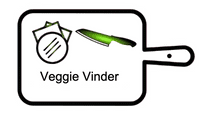What Do Chia Seeds Taste Like? Do Chia Seeds Taste Good?
Chia seeds are tiny black seeds that look like poppy seeds.
They contain omega 3 fatty acids, antioxidants, fiber, protein, calcium, iron, zinc, magnesium, phosphorus, potassium, copper, manganese, molybdenum, selenium, iodine, and vitamin B1.
Chia seeds are native to Mexico and Central America.
The Aztecs called them chia, meaning “strength” or “power.
” Today, they are grown around the world.
Chia seeds taste delicious and nutritious.
They are often added to smoothies, salads, oatmeal, yogurt, and other dishes
What are Chia Seeds?
Chia seeds are tiny black seeds that are used to thicken liquids. They are usually added to smoothies, juices, and other beverages. They are also used as a healthy snack. Chia seeds are known to absorb liquid and swell up to many times their original size. This allows them to hold onto nutrients and act as a natural thickener. How to Make Chia Seed Pudding 1 cup chia seeds 2 cups almond milk or any other non-dairy milk 3 tablespoons honey ½ teaspoon vanilla extract Mix together until well combined. Let sit overnight in fridge. Serve chilled.

Nutritional Benefits of Chia Seeds
Chia seeds are rich in omega fatty acids, fiber, protein, calcium, iron, zinc, magnesium, phosphorus, copper, manganese, vitamin B6, and folate. They are also very good source of antioxidants. Chia seeds are packed with essential minerals such as potassium, sodium, phosphorus, and magnesium. These minerals help maintain blood pressure levels and regulate electrolyte balance in the body. Chia seeds are also a great source of dietary fiber. Fiber helps lower cholesterol levels and reduces risk of heart disease. Chia seeds are a good source of protein. Protein helps build muscles and bones.
Can You Eat Chia Seeds Raw?
Yes, chia seeds can be eaten raw. However, they lose their ability to absorb nutrients if they are not soaked beforehand. Soaking chia seeds in hot water for 10 minutes is enough to activate their absorption properties. After soaking, drain the water from the seeds and store them in airtight containers.
What Do Chia Seeds Taste Like? Do Chia Seeds Taste Good?
Chia seeds taste nutty and slightly sweet. They are a good source of omega 3 fatty acids, fiber, protein, antioxidants, calcium, iron, magnesium, phosphorus, potassium, zinc, copper, manganese, selenium and vitamin B1. How To Make Chia Seed Pudding? Mix 1 cup of chia seeds with 2 cups of almond milk and 1/2 teaspoon vanilla extract. Let sit overnight. In the morning, stir well and refrigerate until ready to serve.
How to Use Chia Seeds in Recipes?
Chia seeds are great for adding texture and nutrients to recipes. Add chia seeds to smoothies, yogurt, oatmeal, salads, desserts, breads, muffins, pancakes, cookies, granola bars, and other baked goods.
How to Find and Choose Chia Seeds?
Chia seeds are tiny black seeds from the Salvia hispanica plant. These seeds are rich in omega 3 fatty acids, fiber, protein, antioxidants, minerals, vitamins, amino acids, and essential oils.
How to Store Chia Seeds?
Chia seeds are very perishable. It is recommended to store chia seeds in airtight containers in a cool dry place away from direct sunlight.
What is the side effects of chia seeds?
Yes, you can take chia seeds daily. Chia seeds are rich in omega 3 fatty acids, fiber, antioxidants, protein, minerals, vitamins, and amino acids. How to take chia seeds? You can eat chia seeds raw or dry roasted. Dry roasting enhances the flavor of chia seeds.
Can chia seeds cause problems?
Yes, if you consume too many chia seeds. It is important to know that chia seeds are not recommended for people who have kidney disease or other conditions that affect the kidneys. Chia seeds contain oxalates, which can lead to calcium oxalate stone formation.
How much chia seeds should I eat a day?
Chia seeds are tiny black seeds that are rich in omega 3 fatty acids. These healthy fats help lower cholesterol levels and reduce inflammation. Chia seeds are also known to improve digestion and boost energy. Chia seeds are also used as a natural weight loss aid because they absorb twice their own volume in liquid. This helps you feel full longer and reduces cravings for unhealthy foods. Chia seeds can also be added to smoothies, salads, soups, oatmeal, yogurt, granola bars, baked goods, and even ice cream.
Do chia seeds cause inflammation?
Yes, eating chia seeds every day is safe. However, if you are pregnant or nursing, consult your doctor before taking any supplements. What are the benefits of chia seeds?
Can chia seeds cause kidney stones?
Chia seeds are rich in omega 3 fatty acids, fiber, protein, calcium, iron, zinc, magnesium, manganese, copper, phosphorus, potassium, sodium, vitamin B1, B2, B3, B6, C, E, K, folate, pantothenic acid, niacin, riboflavin, thiamine, biotin, folic acid, and vitamin D. Chia seeds are used in many recipes such as smoothies, breads, cookies, muffins, pancakes, waffles, salads, soups, sauces, dressings, dips, spreads, and even ice cream.
Can we take chia seeds daily?
Chia seeds are very healthy but if you have any health issues, you should not consume them. People suffering from rheumatoid arthritis, gout, lupus, psoriasis, asthma, diabetes, heart disease, kidney stones, gallbladder problems, ulcers, stomach ulcers, digestive disorders, colitis, Crohn’s disease, diverticulosis, irritable bowel syndrome, and other inflammatory conditions should refrain from consuming chia seeds.
Is it OK to eat chia seeds everyday?
Chia seeds are known to be good sources of fiber and omega 3 fatty acids. Chia seed contains antioxidants such as polyphenols and flavonoids. It is also rich in minerals such as calcium, magnesium, iron, zinc, copper, manganese, phosphorus and potassium. Chia seeds are also known to help reduce cholesterol levels. However, people who suffer from arthritis should avoid eating chia seeds because they could worsen joint pain.
